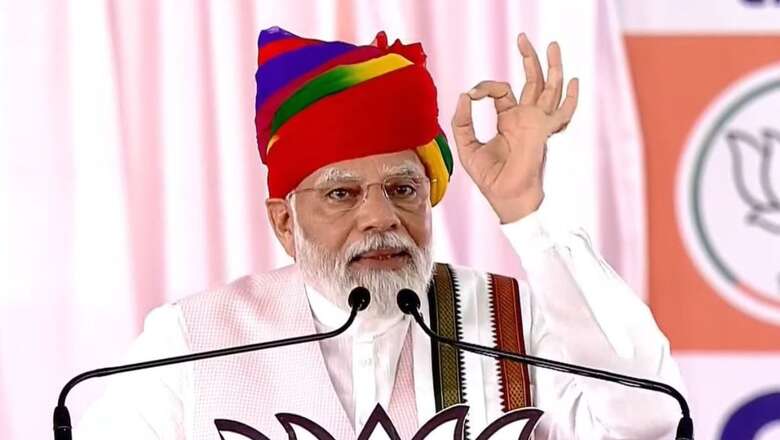
views
Prime Minister Narendra Modi will be the guest of honour at this year’s historic Bastille Day celebrations, the French National Day. Akin to the Storming of the Bastille, another incident which comes to mind vis a vis the French Revolution is Marie Antoinette’s remark “Let them eat cake.” She had purportedly said this in response to people suffering from dire poverty.
In its latest report, the United Nations Global Multidimensional Poverty Index (MPI) noted that the number of Indians deprived of cooking fuel declined from 53 percent to 14 percent and those lacking proper sanitation declined from 50 percent to 11.3 percent. Indians lacking proper drinking water reduced from 16 percent to 3 percent while those without adequate housing decreased from 44 percent to 14 percent. The report also said that India saw a remarkable reduction in poverty, with 415 million people exiting poverty within a span of just 15 years.
The revolutionary reforms ushered in by PM Modi, guided by his unwavering commitment to the tenets of Antyodaya, has made this possible. The PM had unequivocally averred that non-discriminatory honest delivery of schemes is indeed true secularism and social justice.
Couplet 631 of Tirukkural states that an able minister is one who makes the correct choice of the underlying task, the means, manner and time to execute the same. Prime Minister Modi chose to realise his vision by harnessing the potential of technology through an institutionalised and integrated approach of the JAM (Jan Dhan, Aadhaar & Mobile) Trinity and Direct Benefit Transfer (DBT).
Before 2014, there were 17 crore bank accounts and in the last nine years of the Modi government, the number increased to 48 crore with 55 percent of women account holders having a total balance of more than Rs 1.75 lakh crore. 10 crore fake beneficiaries were identified and removed. The Aadhaar card was given a constitutional status in 2016 and survived legal challenges and recipients of government benefits were mandated to enrol in the Aadhaar scheme. India, today, is the most connected country in the world with 1.93 lakh gram panchayats being linked by optic fibre. We are the second largest mobile handset manufacturer in the world with over 120 crore Indians using mobile phones and 60 crore using smartphones.
When the PM was launching United Payment Interface (UPI) in 2016, the Opposition mocked derisively — would the poor eat Data or Atta? Today, India accounts for 40 percent of the world’s real-time digital payments and Google has recommended that the US Federal Reserve develop a similar digital infrastructure ecosystem. UPI has fostered an immense trust in transactions between our people, institutions and the government.
In stark contrast to the days of Dealer Broker Transfer earlier, Rs 28 lakh crore has been directly wired through DBT to the beneficiaries. About Rs 2.75 lakh crore has been saved from being pilfered, paving the way for corruption-free governance.
The Bank for International Settlements stated that India has managed to achieve financial inclusion in seven years which would have otherwise taken 47 years.
Over three crore citizens (68.95 percent women) for the first time ever have a geotagged pucca cement house under PM Awas Yojana, 11.88 crore households have been given access to fluoride and arsenic-free clean drinking water, 11.72 crore toilets have been built giving the much-needed dignity and safety for women in rural areas, over 4 lakh crore rupees has been spent guaranteeing more than 81 crore people free food grains and pulses, 9.6 crore LPG connections have been provided facilitating smoke-free kitchens, thereby saving women from respiratory disorders and, in addition, another 1.6 crore LPG connections have been given for migrants travelling to make a livelihood.
Instead of resorting to politics of ‘tushtikaran’ (appeasement) and the usual piecemeal lip sympathy slogans and ribbon cutting of the past, the Modi government has focused on ‘santushtikaran’ (fulfillment of people’s needs).
During the pandemic peril, the PM’s steadfast leadership reiterating faith in Indian vaccines protected us. By administering more than 220 crore vaccination doses, PM Modi has not only forged a foundational edifice to protect our citizens in the immediate present but also well into the future.
Ayushman Bharat (2017) presently covers 40 percent of Indians and has prevented people from plunging into poverty by saving Rs 80,000 crore. Through the 1.5 lakh AB-Health and Wellness Centres in the country, more than 134 crore people across the country have benefitted from AB-HWCs, with 86.90 crore beneficiaries being cumulatively screened for non-communicable diseases like diabetes, hypertension, common cancers, mental health etc.
Pradhan Mantri Jan Arogya Yojna (2018) targets to provide health cover of 5 lakh per family for 50 crore people. The PM-JAY comprises empanelled hospital network of 28,351 hospitals (including 12,824 private hospitals) around the country. About 23.39 crore beneficiaries have been verified and issued Ayushman Bharat Health care cards with 4.5 crore admissions amounting to more than Rs 61,000 crore. About 49 percent of Ayushman card recipients over 48 percent of total authorised hospital admission have been availed by women, with over 141 medical procedures exclusively earmarked for women.
Mission Indradhanush, aimed at immunising against seven preventable diseases, has provided vaccination and safety for 5.65 crore mothers and children.
National Digital Health Mission (2020) is facilitating prompt and structured healthcare across the country by linking practitioners with patients by digitally giving them access to real-time health records. The government’s telemedicine programme – eSanjeevani – which was a boon during Covid is now bringing a revolution in the health sector. Bridging the urban and rural divide, more than 10 crore beneficiaries have been able to access quality healthcare at their doorstep.
The prime minister’s social security net has transformed the lives of 55 crore Indians by enabling them with affordable insurance and safeguard. The Pradhan Mantri Suraksha Bima Yojana (PMJJBY), Pradhan Mantri Jeevan Jyoti Bima Yojana (PMSBY) and Atal Pension Yojana (APY) have recorded enrolments of 16.2 crores, 34.2 crores and 5.2 crores respectively. These three schemes have brought insurance and pension within the reach of the common citizen as never before in the history of independent India.
In the past nine years, the government, under the resolute leadership of Prime Minister Modi, has not only ensured access to basic amenities but also irreversibly and conclusively empowered our citizens with security, dignity and deserved rights. India, which had hitherto been a fragile economy, has now experienced a tectonic transformation to become the fifth-largest economy in the world. We are now firmly poised on the right trajectory to realise PM Modi’s dream of becoming a developed nation when we commemorate the centennial year of our independence.
The author is a former member of the Prasar Bharati Board, and is with the BJP. Views expressed are personal.














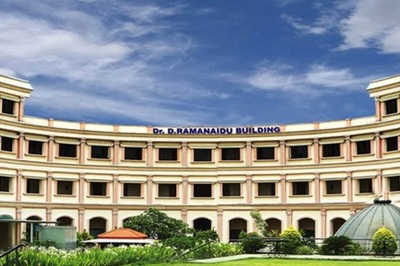
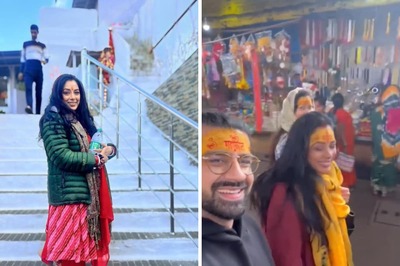
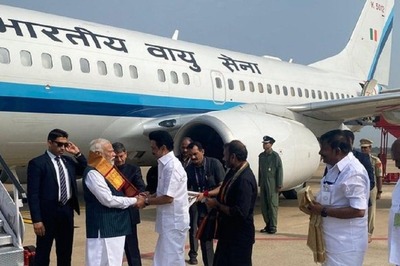


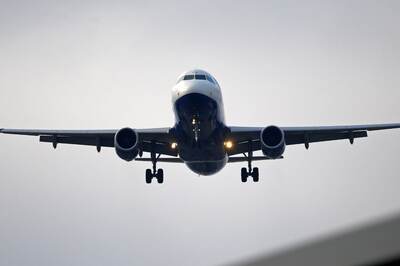
Comments
0 comment